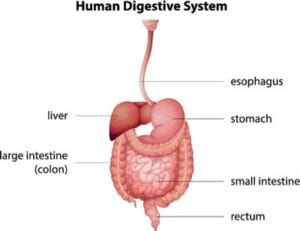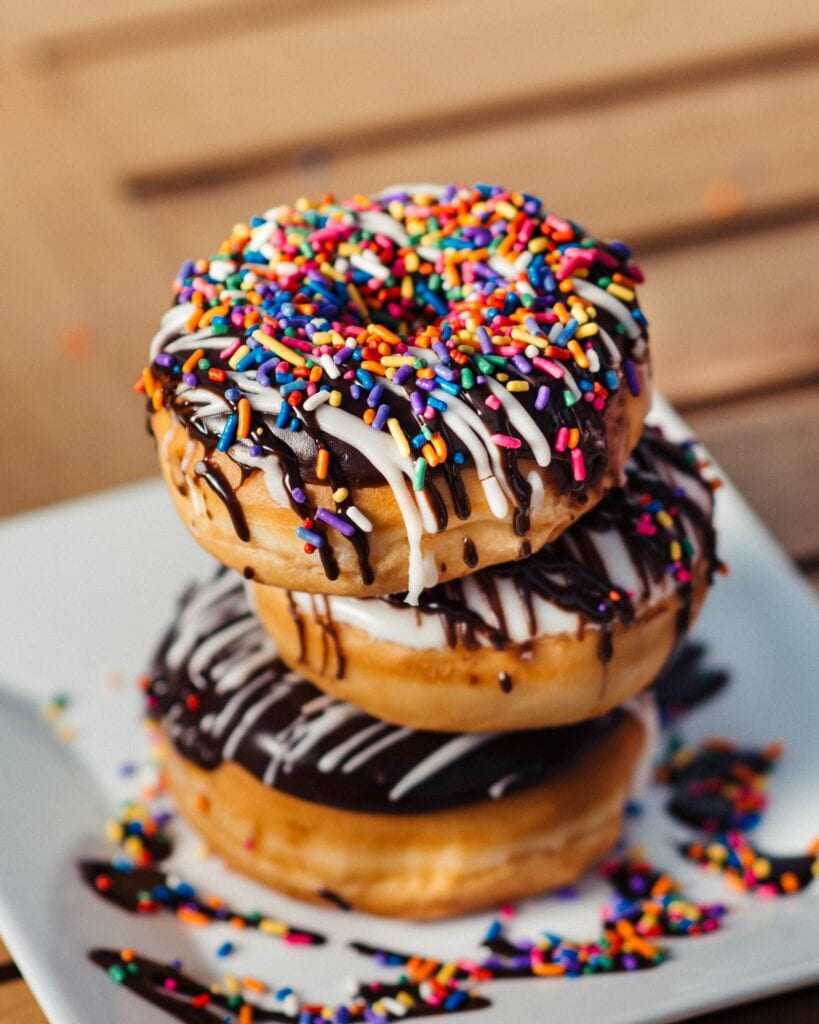An Adventure Through Your Glorious Gut
You may have heard about the digestive system and what makes it so wonderful. If your digestive system is not bothering you, you may not even be aware of it. It’s when it causes problems that we tend to think about it.
Do you experience any of the following more than once a week?
- Heart burn

- Bloating
- Loose Stooks
- Constipation
- Joint Pain
- Headaches
- Low Energy
- Rosacea
- Eczema
- Acne
- Rashes
- Food Sensitivites
- Seasonal Allergies
We are like a doughnut. And the center of our body is our gastrointestinal track; a hollow tube of multiple organs stretching 30 feet long. Let’s start with the structure and function of the human digestive system. You may have also heard about the microbiome! These are the trillions of cells, somewhere between 2 and 7 pounds of friendly bacteria, which are critical to our immune system and the health of our body, mind  and being.
and being.
Did you know that digestion starts in the brain? Think about a lemon. See it? Smell it? Is your mouth watering yet? Saliva starts the digestion of carbohydrates. When we chew food, the teeth and tongue break down the food into tiny pieces. Because your stomach doesn’t have teeth, a mindful practice is to chew every bite of 30 times. Drink your solids and chew your liquids. In your mouth, the microbial count should be a few hundred.
Food moves down the esophagus and settles into the highly acidic stomach (acid pH between 1 and 3 – which would be corrosive to metal). The hydrochloric acid in the stomach breaks the little food particles down into a liquid called chyme. Protein’s primary digestion happens in the stomach. There are about a thousand good bacteria that aid in this process in stomach.
The food leaves stomach and enters the small intestine. With the assistance of bile (fat digestion) and pancreatic juices the acid level is reduced to a pH of around 3-4. The small intestine is where the liquid chyme is broken down into vitamins and minerals. The number of friendly bacteria is increased to thousands, millions, and then billions in the small intestine. These friendly bacteria also make vitamins. If you didn’t chew your food well, big food particles enter the small intestine and it may be  too much food too fast for the bacteria. This may lead to vitamin and mineral deficiencies.
too much food too fast for the bacteria. This may lead to vitamin and mineral deficiencies.
As the food moves through the small intestine and enters the large intestine what’s left is mostly fiber. The vast quantities, as in trillions of bacteria, feed on the fiber. The fermenting of this fiber makes nutrients that feed the colon cells.
The entire process of digestion can take anywhere from 24 to 72 hours. A healthy gut should have a bowel movement at least once a day and in a very healthy gut, about 20 minutes following each meal.
Looking for digestive enzymes to help break down the proteins, fats, carbs and dairy that can irritate your digestion? Check out this product that we use.


0 Comments